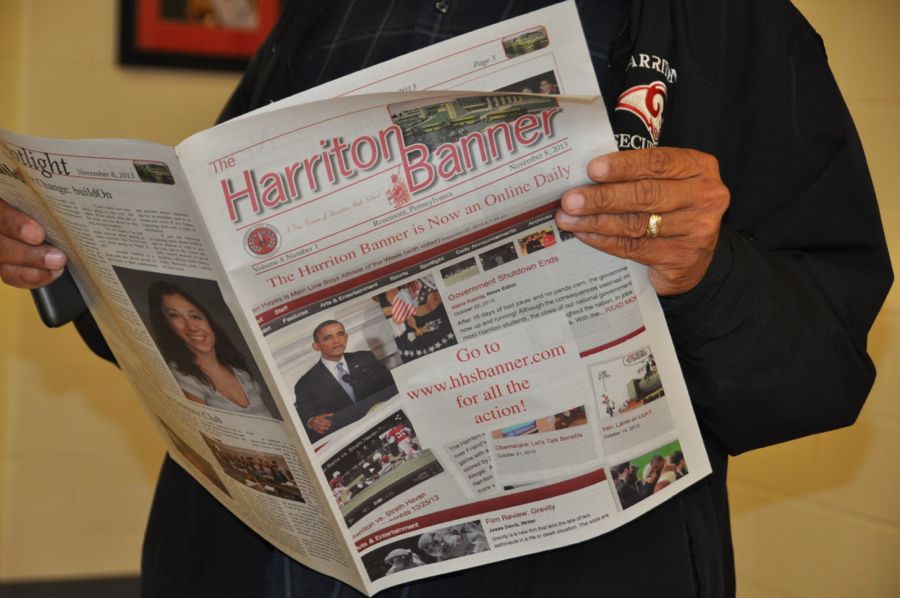The Banner was Better in Print
So much of our lives is now spent online. There is good reason for that change, as the Internet has catalyzed one of the greatest changes in the history of man, making the collective knowledge of human civilization accessible to any person anywhere instantly. That, the accessibility of information, does not mean the demise of print media. Instead, for high school journalists, it means an ever-greater reliance on paper.
However people may think of it, the Harriton Banner is not a professional news source. It does not operate offices across the globe, as does Thompson Reuters or the Associated Press – nor does the Banner have a fulltime editorial staff, as does the Inquirer or the Times. Thus, it cannot pretend that it is as professional as the journalists who work there, with degrees in journalism from prestigious universities around the globe. It cannot pretend that increasing readership is simply a matter of getting the word out. The word is already out, in the form of announcements and RAM day. Instead, it must pivot to other points, realizing that it is no longer a source of the news. Those other points may seem radical, but they are issues facing the continual irrelevance of the Newspaper as a medium rather than the closed world of the Internet.
More importantly, it must change the nature of the content that it covers. The accessibility of information in the modern age not only leads to the irrelevance of the traditional news, it leads to the irrelevance of a newspaper from a high school simply regurgitating or repeating news provided by an Internet source. In the 21st century of high school journalism, it appears that the research, which used to be necessary for high schools in the 1970’s, is not only already done, but also handed out for free by reputable sources like the Huffington Post and the Wall Street Journal.
This pivot means that the Banner must dismantle the news division – one outclassed by every one of the multinational news conglomerates, which now dominate the media. Long gone is a time when only the richest among us had access to the news. Long gone is a time when knowledge of international events was restricted to a highly educated elite. Instead, to avoid simply repeating the news already reported by much larger corporations, the Banner must concentrate its News Division on local matters, one which do not fall under the purview of an industry long established.
The pivot also means the Banner must become not a report of the News, but a report of the opinions of students. Though, in some ways, it has always been this way, because of the content reported and the syntax used by the reporters, a certain distance from the research of the news opens a new frontier of opinion. Perhaps opinion is actually more important to Harriton than the news itself, as opinion is founded on critical thinking, civic mindedness, and knowledge of the world.
Secondly, with the changes that this plan would entail, there would be a much less powerful pressure to publish so much, to publish daily, to publish all news fit for print. Instead, with the dominance of opinion over news, the Banner need not be so prolific, and so demanding in print schedules. With these changes, the Banner could be printed again.
Enshrining the Banner in print would mean that the biggest problem it has would be immediately solved – a problem stemming from the very nature of Internet publishing, a problem that entails one not being passionate about a topic. The Internet will obscure these problems from view. Printing the Banner and enshrining it in its rightful place on the Library circulation desk would mean that the Banner has a physical presence, one to act on the curiosity of the passerby.
That print edition, present in my freshman year, got me interested in the Banner – a fact I soon forgot after it disappeared from the face of this Earth and onto the vast Internet. That print edition was a paper that people read, a paper randomly picked up while leaving, a paper significantly better than the website buried in the realm of Facebook, the Herd, and Twitter.


